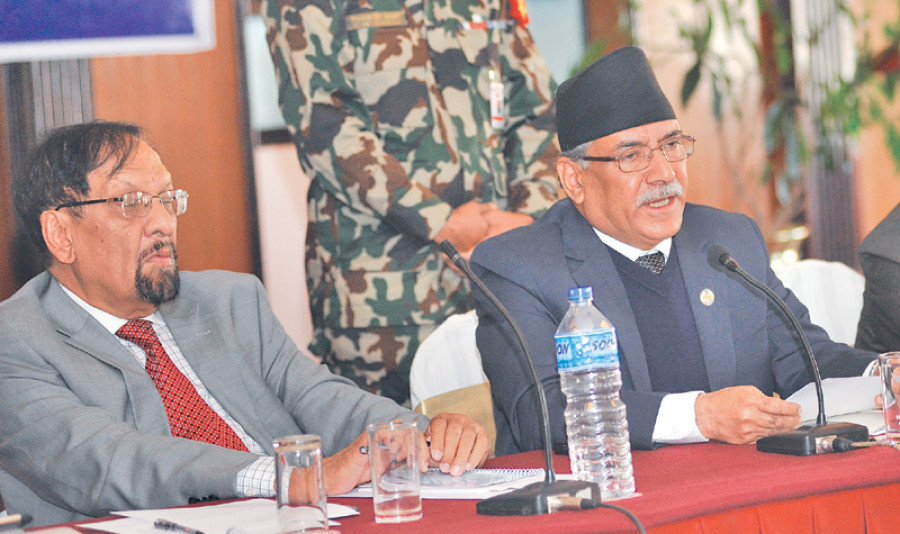Miscellaneous
PM makes a pitch for broader trans-Himalayan cooperation
Prime Minister Pushpa Kamal Dahal has stressed on the need to widen trans-Himalayan cooperation to supplement the existing mechanisms like Saarc, Bimstec.
Prime Minister Pushpa Kamal Dahal has stressed on the need to widen trans-Himalayan cooperation to supplement the existing mechanisms like Saarc, Bimstec.
Speaking at a seminar on ‘Trans-Himalayan Coopera-tion beyond Trilateral Discourse’ organised by the Development Institute (DI) on Wednesday, the PM said that the prospect of trilateral cooperation has received positive response from leaders in the neighbourhood. “A few weeks ago in Goa India, I got the chance to meet Indian PM Narendra Modi and President Xi Jinping in an informal setting where I reiterate the necessity of trilateral cooperation.”
Highlighting the progress made by India and China on the economic front, Dahal said that against this backdrop, “we need to explore new possibilities of cooperation. “Trans-Himalayan cooperation can be one such collaborative platform to multiply our efforts for cooperation,” he said, adding that a link between the South with Central Asian regions can open plethora of opportunities for market expansion, job creation and growth in trade.
Himalayas can no more be considered as barriers and obstacles, he said, instead, they can serve as important bridges that connect the two emerging regions in Asia.
“Given the unprecedented growth of technology and innovation, trans-Himalayan roadways and railways can no longer be confined to theory,” PM Dahal said.
In the framework of broader trans-Himalayan cooperation, he said, Nepal can serve as an important transit corridor. “To realise that role, we need to invest in infrastructure—build multilane highways and railways that can join the big economic giants of north and south.
Speaking on the occasion, CPN-UML Secretary Pradeep Gyawali insisted on developing Kathmandu as a trade transit point between India and China.
Nepali Congress leader Ram Sharan Mahat pointed out the need for establishing political stability along with the enforcement of the new constitution for the promotion of trade.
Institute’s Chair Bharat Mohan Adhikari said Nepal could reap benefits from its potential areas such as cash crops, cultural and recreational tourism, and water resources.




 11.12°C Kathmandu
11.12°C Kathmandu







%20(1).jpg&w=300&height=200)

